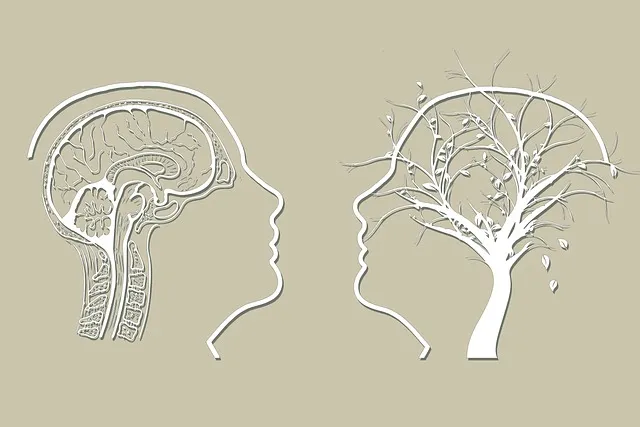The Kaiser Permanente Behavioral Health Center Lakewood tackles mental health stigma through multi-faceted community engagement. They offer educational sessions, Stress Management Workshops, and open dialogues to reduce misconceptions, encourage early intervention, and improve treatment adherence. By empowering individuals with stories and education, they foster resilience and support for those facing mental health challenges. Their dual approach includes advocacy for policy interventions integrating mental care into primary healthcare systems, normalizing conversations and reducing barriers to access.
Mental illness stigma remains a significant barrier to effective mental healthcare. At the Kaiser Permanente Behavioral Health Center Lakewood, we’re witnessing firsthand the impact of this social construct on patient outcomes. This article explores targeted stigma reduction efforts, focusing on community engagement and education strategies proven successful in creating a more inclusive environment. We also delve into the critical roles of media and policy changes at KP Lakewood to combat mental illness stigma and improve access to care for all.
- Understanding Stigma and its Impact on Mental Health Care at Kaiser Permanente Behavioral Health Center Lakewood
- Strategies for Reducing Stigma: Engaging the Community and Promoting Education
- The Role of Media and Policy in Combating Mental Illness Stigma at KP Lakewood
Understanding Stigma and its Impact on Mental Health Care at Kaiser Permanente Behavioral Health Center Lakewood

At Kaiser Permanente Behavioral Health Center Lakewood, understanding stigma is a cornerstone of their mental health care approach. Stigma, often stemming from societal perceptions and misconceptions about mental illness, can create significant barriers to seeking treatment. It leads to feelings of shame, isolation, and fear among individuals struggling with their mental well-being. The center recognizes that breaking down these barriers requires a multifaceted strategy, focusing on both individual and community levels.
Through various initiatives, Kaiser Permanente aims to foster Mental Health Awareness and promote Emotional Intelligence within the community. This includes hosting educational sessions, Stress Management Workshops, and engaging in open conversations about mental health. By reducing stigma, the organization strives to encourage early intervention, improve treatment adherence, and ultimately enhance the overall well-being of individuals served at the Kaiser Permanente Behavioral Health Center Lakewood.
Strategies for Reducing Stigma: Engaging the Community and Promoting Education

Reducing stigma surrounding mental illness requires a collective effort to shift societal perceptions and foster an environment of understanding and support. One powerful strategy is to engage the community directly, encouraging open conversations about mental health. This can be achieved through various initiatives such as educational workshops, public awareness campaigns, and support group meetings organized by local behavioral health centers like Kaiser Permanente behavioral health center Lakewood. These events provide a platform for individuals with personal experiences to share their stories, dispel myths, and offer insights into the realities of living with mental illness.
Education plays a pivotal role in stigma reduction. By incorporating mental health education into school curricula and community programs, we can foster empathy and break down barriers. Teaching about emotional intelligence, self-esteem improvement, and confidence boosting techniques empowers individuals to recognize signs of distress in themselves and others, encouraging early intervention and support-seeking behaviors. This proactive approach ensures that communities become more resilient and better equipped to support those facing mental health challenges.
The Role of Media and Policy in Combating Mental Illness Stigma at KP Lakewood

The media plays a pivotal role in shaping societal perceptions about mental health, and its influence is no less significant at the Kaiser Permanente behavioral health center Lakewood. By employing Mind Over Matter principles, the center aims to dispel myths and showcase the reality of living with mental illness. Through sensitive storytelling and informative content, they strive to reduce the stigma associated with seeking behavioral health support. This approach encourages individuals to view mental wellness as an integral part of overall health.
Policy interventions are equally crucial in combating stigma. The Kaiser Permanente behavioral health center Lakewood advocates for evidence-based practices and Stress Reduction Methods that prioritize emotional well-being promotion techniques. By supporting policies that integrate mental health care into primary healthcare systems, they aim to normalize conversations around mental illness and reduce the barriers that prevent people from accessing necessary services. These efforts collectively contribute to a more inclusive and supportive environment where individuals feel empowered to prioritize their mental health without fear of judgment or discrimination.
Efforts to reduce mental illness stigma, as demonstrated by initiatives at the Kaiser Permanente Behavioral Health Center Lakewood, are vital for fostering inclusive communities and enhancing access to quality mental healthcare. By engaging the community through education and leveraging media and policy changes, we can create a more supportive environment where individuals feel empowered to seek help without fear of judgment. These strategies hold the key to unraveling the complex web of stigma and moving towards a more compassionate society that prioritizes mental well-being for all.






